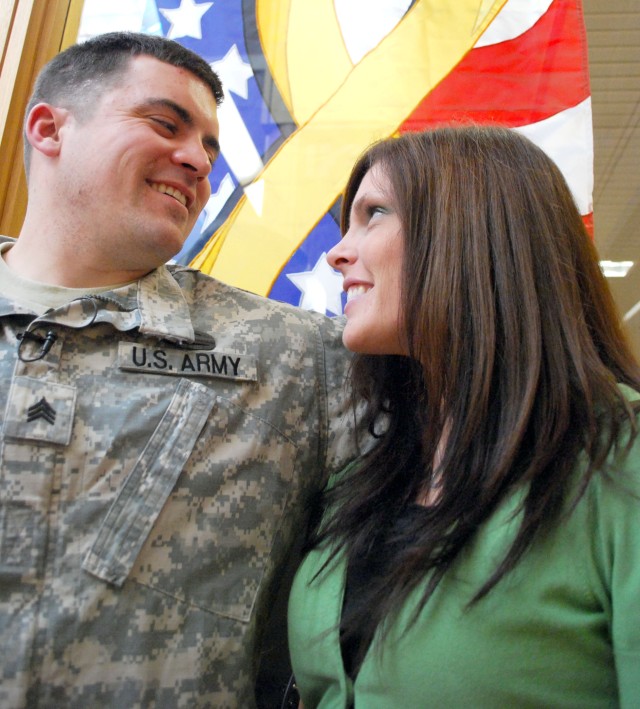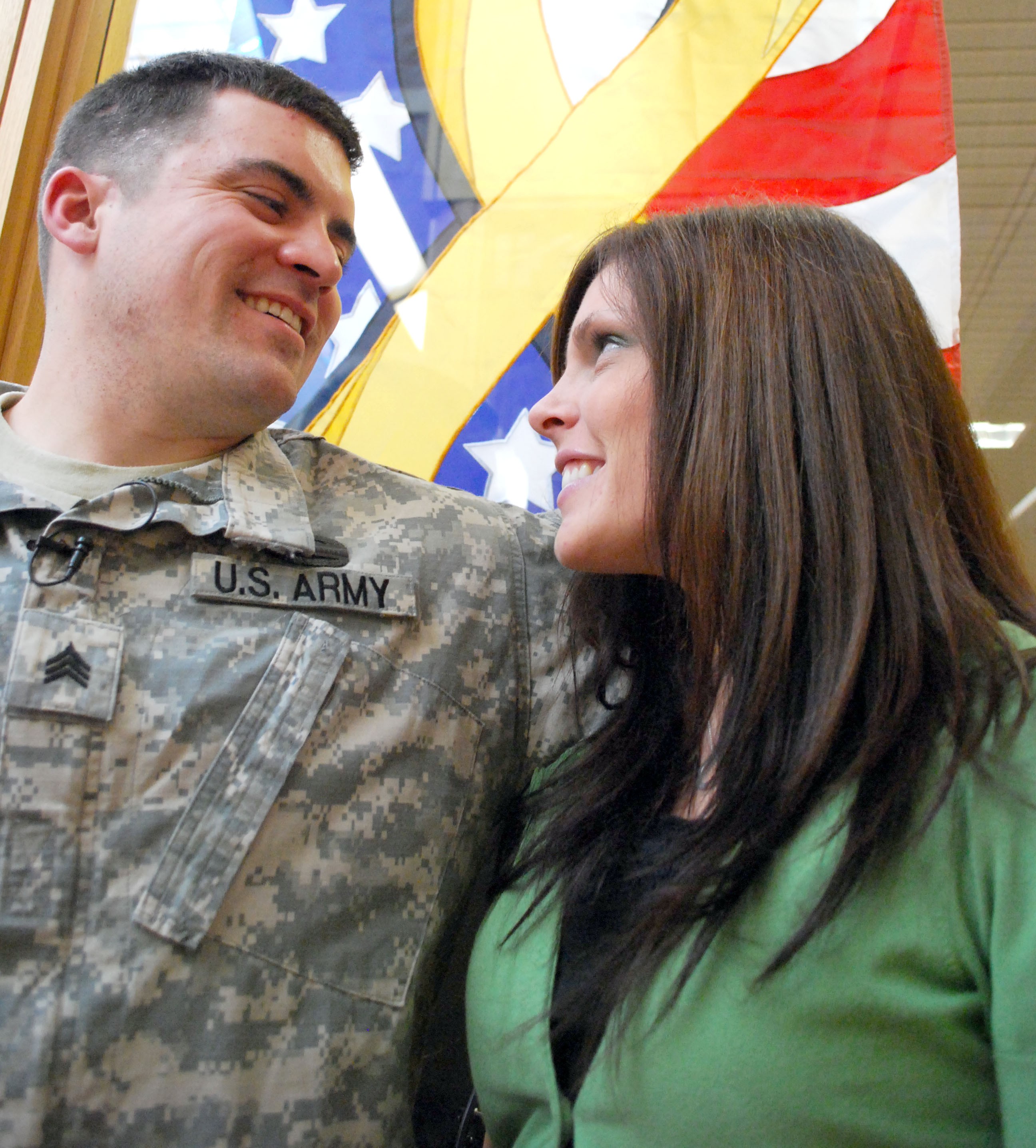
Sgt. Shane Sherer was 12 days from leaving northern Afghanistan when a mortar round tore through a nearby vehicle and exploded about seven to 12 feet away from him. The blast left Sherer with shrapnel embedded in his legs, a severely damaged right hand and a penetrating head wound. An emergency craniotomy - conducted by a general surgeon from instructions received over the phone by a neurosurgeon - reduced the swelling in Sherer's head. After he was stabilized, he was sent to Bethesda Naval Hospital in Bethesda, Md., where he underwent extensive rehabilitation. Sherer shared his story as part of a presentation at Madigan Army Medical Center recognizing Brain Injury Awareness Month, a national event that cultivates understanding about brain injuries. Sherer had to relearn how to walk, how to talk and how to swallow. He ate a pureed diet for about a month, which he called "awesome," but with a grimace on his face. "I don't know how babies do it," he said. Before long, he was diagnosed with a traumatic brain injury. At one point, he completed eight hours of therapy a day to help restore his cognitive abilities. He is now involved in a Veteran's Administration rehabilitation program three times a week with a one-on-one coach, but he still suffers from the effects of the blast. "Math is very hard for me. I will sit there for 10 minutes trying to figure out how much of a tip to add to a restaurant bill," Sherer said. "And my processing speed is slower. I hear what people are saying but it's like it's on a delay." These are classic symptoms of TBI, said Dr. Fred Flynn, the medical director of the Traumatic Brain Injury Program at Madigan. Flynn stated that 80 to 85 percent of patients with a TBI have a mild case, and 85 to 90 percent of those suffering from a mild TBI will recover within a matter of days to weeks. "Mild TBI is the most common form of TBI that we see at Madigan and throughout the Armed Services," Flynn said. With mild TBI, the onset of symptoms is right after the injury itself, and the injury tends to resolve over time in a progressive manner. Flynn said most Soldiers are treated in country and will return to their units, but there can be other circumstances that worsen or interrupt a Soldier's ability to recover. "When mild TBI is compounded with Post-Traumatic Stress Disorder, a disorder where symptoms are often delayed, mild TBI may actually reemerge," Flynn said. According to Flynn, the most established treatment for mild TBI is the education of the individual and Family members, which entails recognizing the injury and then assessing and treating the symptoms. Flynn stressed that adequate sleep and hydration, as well as avoidance of any type of activity that might aggravate the injury, is also necessary. The education piece is essential, said Bronwyn Pughe, the TBI Education Specialist Administrator at Madigan's TBI Program. Quarterly briefings about TBI are given to units on Joint Base Lewis-McChord, and custom briefings are developed for other organizations and agencies interested in learning more about TBI. Weekly professional development workshops and lectures are also available. "All Soldiers who redeploy are given a 15-minute briefing regarding TBI, educating them about what TBI is and reducing stigma," Pughe said. Flynn stated that Madigan's TBI program is changing dynamically. In just two years, the program has grown to a staff of 25 with different specialties; all designed to work together as a team and take a holistic approach to patient care. For more information about Madigan's TBI Program, call 253-968-0606.

Social Sharing